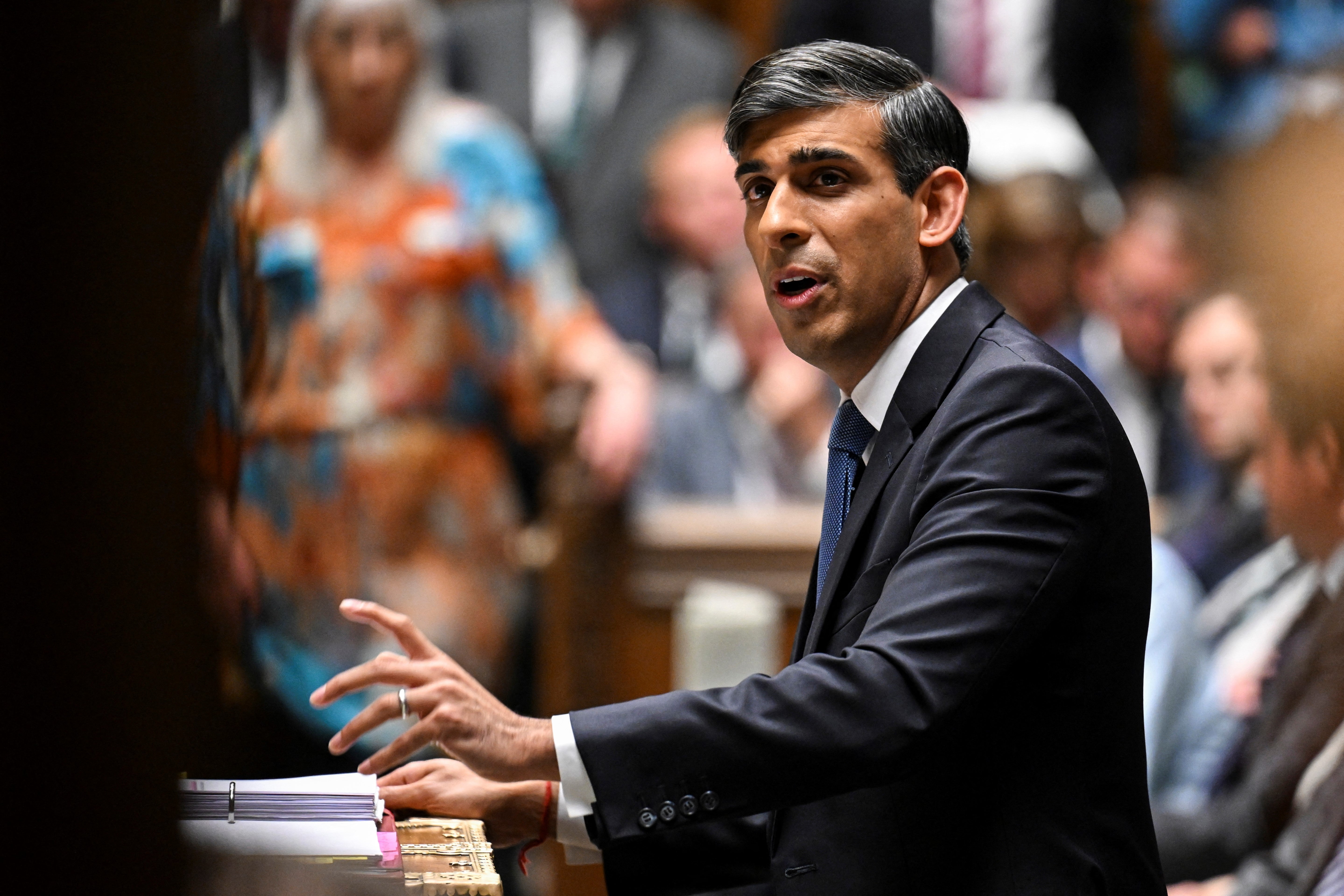Why has Rishi Sunak called a snap election?
With the Tories around 20 points behind Labour in the polls, most experts are predicting not just that Sir Keir Starmer will win the coming election, but will do so by a landslide, writes Simon Walters – so what is the PM thinking?


On the face of it, Rishi Sunak has just done the political equivalent of a man on death row choosing to bring forward the date of his execution.
With the Tories around 20 points behind Labour in the polls, most experts are predicting not just that Sir Keir Starmer will win the coming election, but will do so by a landslide.
He seems to have done so on the basis of a single set of economic figures, this morning, which show inflation is down and that further interest rate cuts are on the way. His pitch to the electorate will be that the economy is back on the up under the Conservatives and “don’t let Labour wreck it”.
It is a mantra that has served the Tories well in the past. But it will take a lot more than one set of statistics to erase the scars of the economic crash inflicted on the country by Sunak’s reckless predecessor, Liz Truss.
According to British election custom, he could have delayed polling day until January next year. Instead, he has chosen to go six months early.
Maybe he hopes to avoid the fate of John Major in 1997? Major’s Tory Party was in a similar state to Sunak’s: in power for more than a decade and battered by splits, scandals, rows over Europe and economic blunders.
Unlike Sunak, Major postponed his judgement day until the last possible moment of May, 1997 – and was obliterated by Tony Blair.
Along with its other troubles, Major’s Conservatives had been damaged beyond repair by the “Black Wednesday” economic crisis in September 1992, when the UK crashed out of the EU’s Exchange Rate Mechanism.
Sunak has as much chance of removing the indelible stain left on his party’s reputation for economic prudence by Truss.
The parallel between Major and Sunak does not end there. Like Sunak, Major had inherited a divided party and was seen as a worthy (but dull) leader.
Moreover, by the time of the 1997 election, despite the Tories’ lowly poll ratings, there were clear signs of the green shoots of an economic upturn – just as there appears to be now. But it did not help Major avoid electoral wipe out.
For all his bold talk, deep down, Sunak must know his chances of winning are tiny. Perhaps he has calculated that he might as well get the agony over with – and not delay the inevitable?
A large part of the Conservative Party has already sounded the retreat. How else can one interpret the actions of dozens of Tory MPs who have thrown in the towel, stating they will not contest their seats?
Even more damning – others have defected to Labour.
Recent history shows that however carefully prime ministers call elections, the best laid plans can go wrong.
Former Labour prime minister Gordon Brown bottled calling a snap election in 2007 when he was riding high in the polls – and lived to regret it. He lost in 2010.
Theresa May shrugged aside a lifetime of caution and did call a snap election in 2017, when she was also ahead in the polls. In the event, she very nearly lost to Labour’s Jeremy Corbyn. Two years later, she was forced to resign as prime minister.
Whenever Major’s fate is pointed out to Sunak’s advisers, they are quick to point out that Starmer is no Tony Blair.
In 1997, many voters were won over by Blair’s charisma, not a quality journeyman Starmer is blessed with.
But for all his lack of stardust, few doubt that Starmer has the intellect and gravitas needed to form a government. He has curbed the excesses of Labour’s left wing and restored discipline to the party.
So, with the odds so heavily stacked against him, it is possible that Sunak figures that attack is the best form of defence – and that by calling election he looks tough and decisive.
Tory MP Craig Mackinlay got a hero’s welcome in the Commons today after defying all the odds to recover from a quadruple amputation.
Mackinlay plans to stand in the election and says he hopes his recovery has shown his constituents he has the fighting qualities needed to continue representing them.
Maybe that is where Sunak has taken his inspiration from to risk all on a July election.






Join our commenting forum
Join thought-provoking conversations, follow other Independent readers and see their replies
Comments